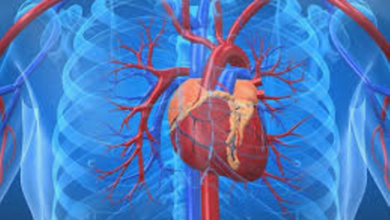Plant-Based Diet: Is It the Key to Longevity?
A plant-based diet is increasingly recognized as a powerful approach to improving health, enhancing longevity, and preventing chronic diseases.

A plant-based diet is increasingly recognized as a powerful approach to improving health, enhancing longevity, and preventing chronic diseases. Defined by an emphasis on whole plant foods such as fruits, vegetables, legumes, nuts, seeds, and whole grains, this diet limits or completely eliminates animal products. With growing scientific evidence supporting its benefits, more people are turning to vegetarian eating to improve their quality of life and extend their lifespan.
The connection between diet and longevity has been extensively studied, with many findings indicating that plant-based diets contribute to a longer, healthier life. Countries where vegetarian eating is a cultural norm, such as those in the Blue Zones, show lower rates of heart disease, cancer, and other chronic illnesses. This article explores the various health benefits of a vegetarian diet, how it promotes longevity, practical steps for transitioning to this lifestyle, and delicious vegetarian meal ideas to help you get started.
The Health Benefits of a Plant-Based Diet
A plant-based diet has gained significant popularity in recent years due to its numerous health benefits. This dietary approach emphasizes whole, minimally processed plant foods, including fruits, vegetables, legumes, whole grains, nuts, and seeds, while limiting or eliminating animal products. Scientific research has shown that adopting a plant-based diet can lead to improved overall health and a reduced risk of chronic diseases. One of the most well-documented benefits of a vegetarian diet is its positive impact on cardiovascular health. Plant-based foods are naturally low in saturated fats and cholesterol while being rich in fiber, antioxidants, and healthy fats. Studies have shown that individuals following a plant-based diet have lower blood pressure, reduced cholesterol levels, and a decreased risk of heart disease and stroke. Additionally, people who adopt plant-based diets often find it easier to maintain a healthy weight. Whole plant foods are generally lower in calories while being rich in fiber, which promotes satiety and reduces overeating. As a result, a vegetarian diet can help prevent obesity and related conditions such as type 2 diabetes. Furthermore, vegetarian diets are associated with a lower risk of certain cancers. Fruits and vegetables contain powerful antioxidants and phytochemicals that help protect cells from damage and reduce inflammation. A diet high in fiber from plant sources has also been linked to a lower risk of colorectal cancer. Beyond physical health, a plant-based diet can enhance overall well-being by promoting better digestion, boosting energy levels, and supporting mental health. The abundance of vitamins, minerals, and healthy plant compounds contributes to improved gut health and a stronger immune system. In summary, embracing a plant-based diet offers a wide range of health benefits, including improved heart health, weight management, reduced risk of chronic diseases, and overall enhanced well-being.
Reduces Risk of Chronic Diseases
One of the most compelling reasons to adopt a vegetarian diet is its ability to reduce the risk of chronic diseases. Studies have shown that individuals who consume predominantly plant-based foods have lower rates of heart disease, high blood pressure, and type 2 diabetes. This is largely due to the high fiber content, healthy fats, and antioxidant-rich nature of vegetarian foods, which help to regulate blood sugar levels, reduce inflammation, and improve overall cardiovascular health.
Supports Heart Health
Heart disease remains one of the leading causes of death worldwide, but research suggests that a plant-based diet can significantly lower the risk. The diet is rich in fiber, antioxidants, and healthy fats from nuts, seeds, and avocados, all of which contribute to improved cholesterol levels and reduced arterial plaque buildup. Eliminating or minimizing the intake of red and processed meats, which are high in saturated fats, can further protect against heart disease.
Promotes Gut Health
A healthy gut is essential for overall well-being, and a vegetarian diet supports digestive health by providing an abundance of fiber. Fiber promotes regular bowel movements, supports beneficial gut bacteria, and reduces the risk of conditions such as irritable bowel syndrome and colon cancer. Fermented vegetarian foods such as kimchi, sauerkraut, and miso also contribute to a balanced gut microbiome.
Helps Maintain a Healthy Weight
Obesity is a major risk factor for numerous health conditions, including diabetes, heart disease, and certain cancers. A plant-based diet, which is naturally lower in calories and higher in fiber, can aid in weight management. Plant foods provide sustained energy, helping individuals feel fuller for longer while reducing the tendency to overeat.
Enhances Brain Function and Reduces Risk of Cognitive Decline
Several studies suggest that plant-based diets may reduce the risk of cognitive decline and neurodegenerative diseases such as Alzheimer’s. The antioxidants and phytochemicals found in plant foods help combat oxidative stress, which is a key contributor to brain aging. Omega-3 fatty acids from sources like flaxseeds, chia seeds, and walnuts also support brain health.
Contributes to Longevity
Numerous studies link plant-based eating to a longer lifespan. In regions known for their high number of centenarians, such as Okinawa, Japan, and Loma Linda, California, vegetarian diets are common. These diets emphasize whole foods, minimal processed foods, and moderate calorie intake, all of which contribute to longevity.
Transitioning to a Plant-Based Diet
Switching to a plant-based diet does not have to be an abrupt change; gradual transitions can make the shift more sustainable. Start by incorporating more vegetarian meals into your week while gradually reducing animal-based products.
Choose whole, minimally processed foods over refined grains and processed snacks. Legumes, beans, lentils, and tofu can be excellent protein sources, while nuts, seeds, and plant-based oils provide healthy fats. Experimenting with a variety of vegetables, grains, and spices can make meals more exciting and flavorful.
Meal planning is a useful tool for maintaining a vegetarian diet. Preparing meals in advance and stocking up on essentials like beans, whole grains, and fresh produce can prevent the temptation of unhealthy options.
Delicious Plant-Based Meal Ideas
- Breakfast: Oatmeal topped with fresh berries, nuts, and seeds or a smoothie made with spinach, banana, almond milk, and flaxseeds.
- Lunch: A quinoa and chickpea salad with mixed greens, cherry tomatoes, and a lemon-tahini dressing.
- Dinner: Stir-fried tofu with vegetables and brown rice or a lentil soup with whole-grain bread.
- Snacks: Hummus with veggie sticks, a handful of almonds, or a bowl of mixed fruit.
Read More: Proven Diet Plans for PCOS Weight Loss Success
Conclusion
A vegetarian diet is more than just a trend—it is a lifestyle choice that can lead to significant health improvements and increased longevity. By focusing on nutrient-dense, whole plant foods, individuals can reduce their risk of chronic diseases, maintain a healthy weight, and enhance overall well-being. The benefits of plant-based eating are evident not only in research but also in populations that have long embraced this way of life and enjoy remarkable longevity.
Making the transition to a vegetarian diet does not require drastic changes but rather small, manageable steps that gradually lead to healthier eating habits. Whether motivated by health, environmental concerns, or ethical considerations, adopting a vegetarian diet can be a rewarding and sustainable choice that promotes long-term vitality and well-being.
FAQs
Is a vegetarian diet suitable for everyone?
Yes, a vegetarian diet can be adapted to meet the nutritional needs of individuals of all ages, including children, athletes, and older adults, with proper meal planning.
Will I get enough protein on a plant-based diet?
Yes, plant-based protein sources such as beans, lentils, tofu, quinoa, and nuts provide ample protein to meet daily requirements.
Can a plant-based diet help with weight loss?
Yes, due to its high fiber content and nutrient density, a vegetarian diet naturally supports weight management and reduces calorie intake.
Are there any drawbacks to a vegetarian diet?
If not properly planned, a vegetarian diet may lack certain nutrients such as vitamin B12, iron, and omega-3 fatty acids. However, these can be obtained through fortified foods or supplements.
How can I start a plant-based diet?
Begin by incorporating more vegetarian meals gradually, replacing animal products with plant alternatives, and experimenting with new vegetarian recipes.











